A Beginner's Guide to 5 Popular Interior Design Styles
Published on September 11, 2025
Choosing a design style can be one of the most exciting—and overwhelming—parts of decorating a room. With so many options, how do you find the one that truly feels like you? This guide breaks down five of the most popular interior design styles to help you discover your perfect match.
To make it easy to compare, we've applied each style to the exact same empty bedroom, showing just how transformative a clear design vision can be.
The Starting Point: An Empty Bedroom
Here is the blank canvas we'll be redesigning throughout this guide. It's a simple room with good bones, just waiting for a personality.
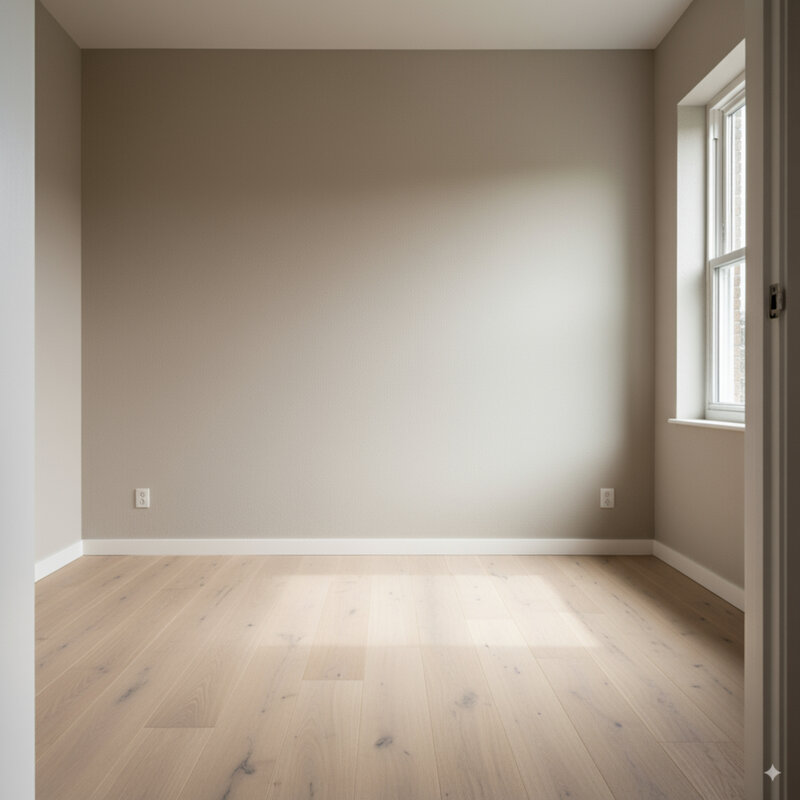
1. Modern
Modern design, which originated in the early 20th century, is all about simplicity and function. It emphasizes clean lines, simple forms, and a lack of ornamentation. It's a style that feels intentional, uncluttered, and sophisticated.
Key Characteristics:
- Clean, straight lines: Think simple geometric shapes.
- Neutral color palette: Dominated by black, white, and grey.
- Natural materials: Unpainted wood, metal, leather, and plastic are common.
- Lack of clutter: Every piece has a purpose.
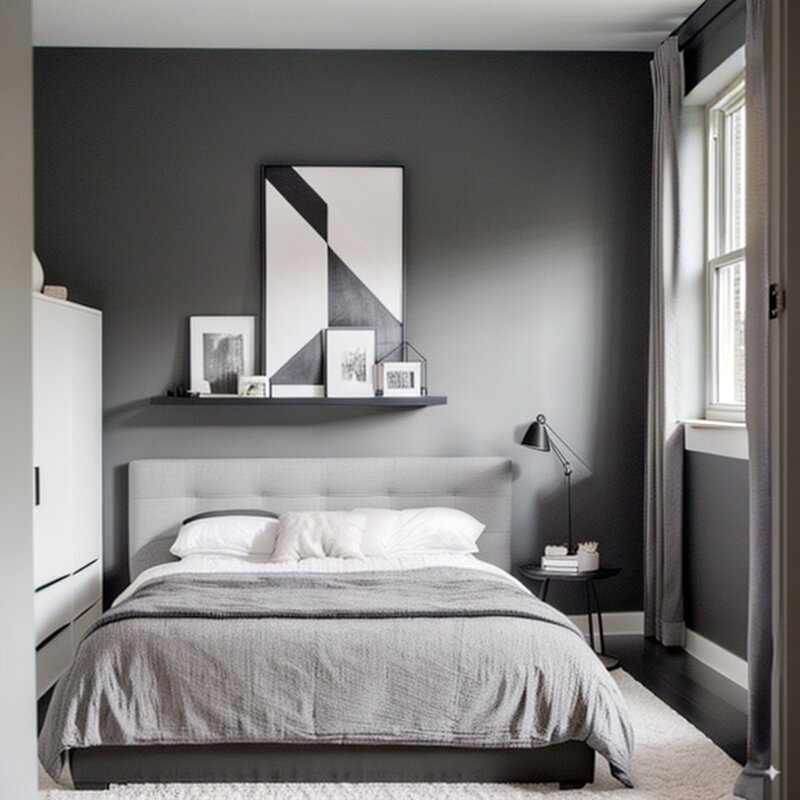
2. Scandinavian
Borrowing heavily from modernism, Scandinavian design adds a layer of warmth and coziness. It prioritizes light, simplicity, and a deep connection to nature. This style is famous for its bright, airy feel and its comfortable, lived-in aesthetic, often summarized by the Danish word *hygge*.
Key Characteristics:
- Light and bright: White walls are a hallmark to maximize natural light.
- Light-colored woods: Think ash, beech, and pine for furniture and floors.
- Cozy textiles: Soft textures like chunky knit blankets, wool rugs, and linen are essential.
- Functional and simple: Similar to modern, but with a softer, more organic touch.
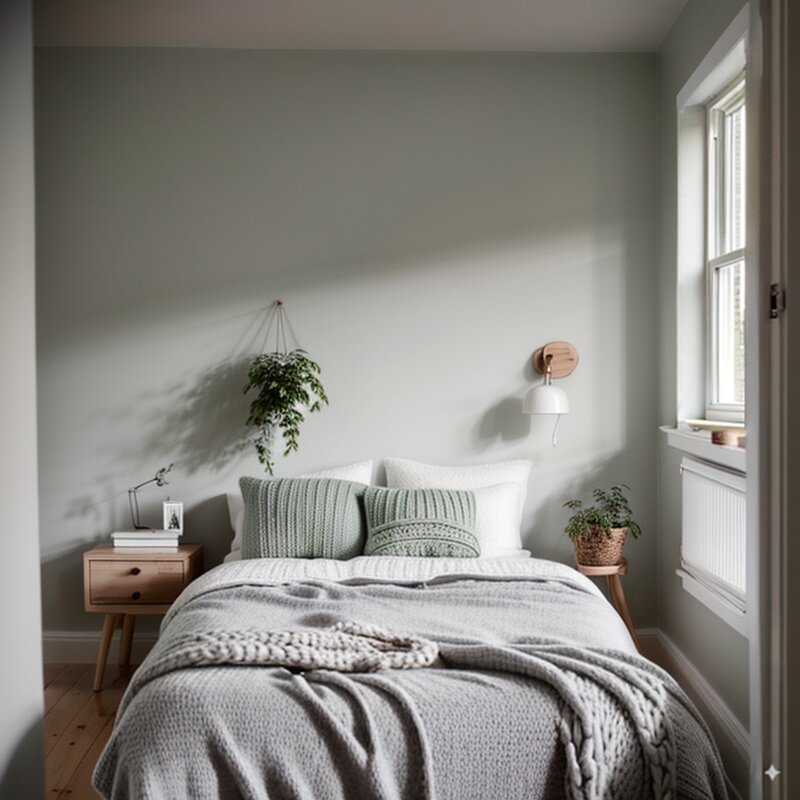
3. Industrial
Inspired by old factories and urban lofts, industrial design celebrates raw, unfinished materials. It's a style that feels edgy, mature, and full of character, showcasing the structural elements of a space rather than hiding them.
Key Characteristics:
- Exposed materials: Brick walls, concrete floors, and visible pipes or ductwork are common.
- Wood and metal: A mix of weathered wood and dark metals like steel and iron.
- Neutral, moody colors: A palette of grey, black, brown, and brick red.
- Spacious and open: Often features high ceilings and an open-concept layout.
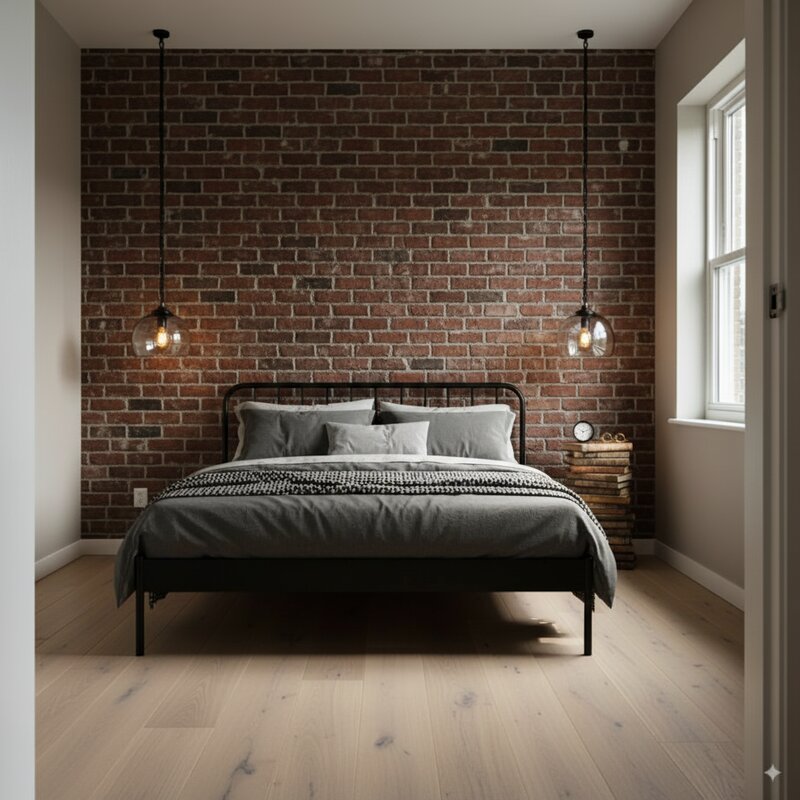
4. Bohemian (Boho)
Bohemian design is the opposite of minimalism. It's a free-spirited, eclectic style that embraces a "more is more" philosophy. It's all about personal expression, mixing patterns, textures, and items collected over time to create a space that is vibrant and full of life.
Key Characteristics:
- Rich patterns and textures: Layered rugs, macrame hangings, and mismatched textiles.
- Global influences: Items and patterns from around the world are common.
- Lots of plants: Greenery is a key element, often in hanging planters.
- Natural and rustic materials: Rattan, wicker, and worn wood are staples.
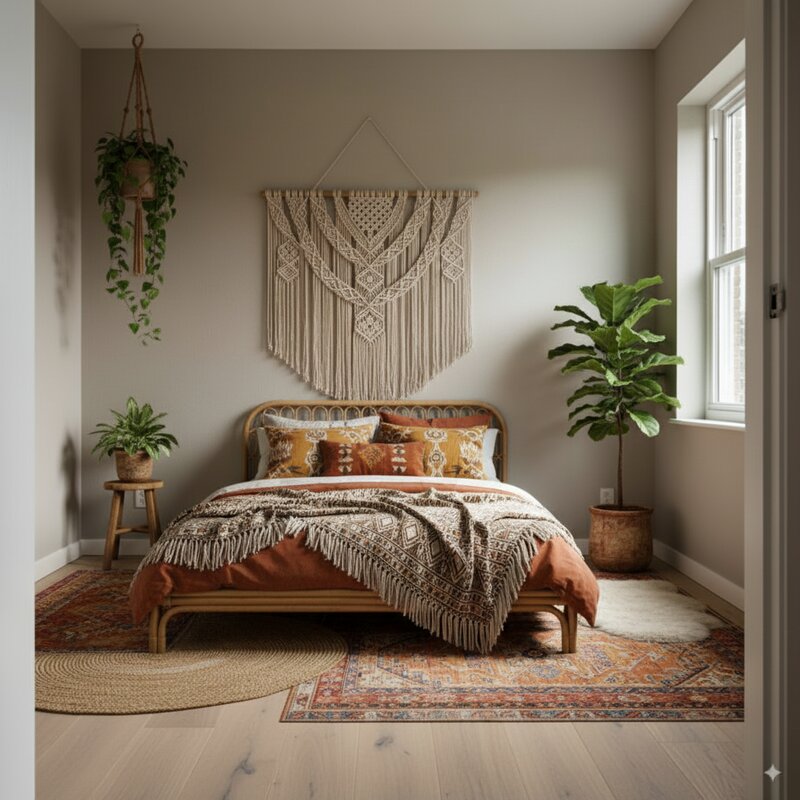
5. Coastal
Coastal design aims to capture the light and breezy feeling of being by the sea. It's a relaxed, calming style that emphasizes natural light and soft, ocean-inspired colors. It's not about kitschy seashells, but about creating a serene and airy retreat.
Key Characteristics:
- Light color palette: Crisp whites, soft blues, and sandy beiges.
- Natural light: Large windows and sheer curtains are used to maximize sunlight.
- Natural materials: Light-washed woods, jute, rattan, and linen textiles.
- Clean and uncluttered: The feel is relaxed but not messy.
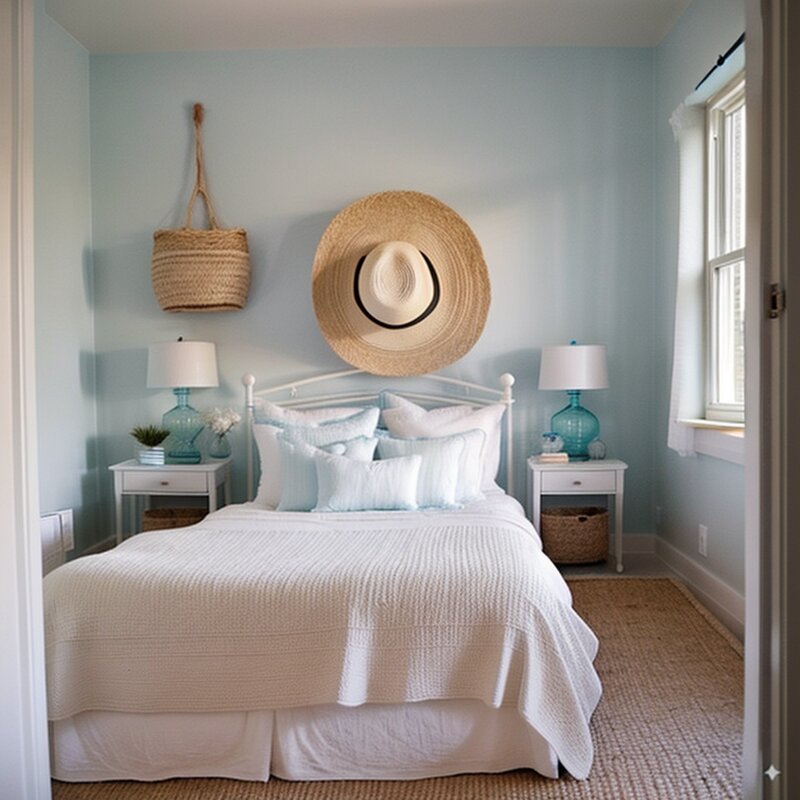
Which Style is Yours?
Reading about styles is one thing, but seeing them in your own room is another. Stop guessing and start visualizing. Upload a photo of your room to AInteriors and try on any of these styles in seconds.
Start Experimenting for Free